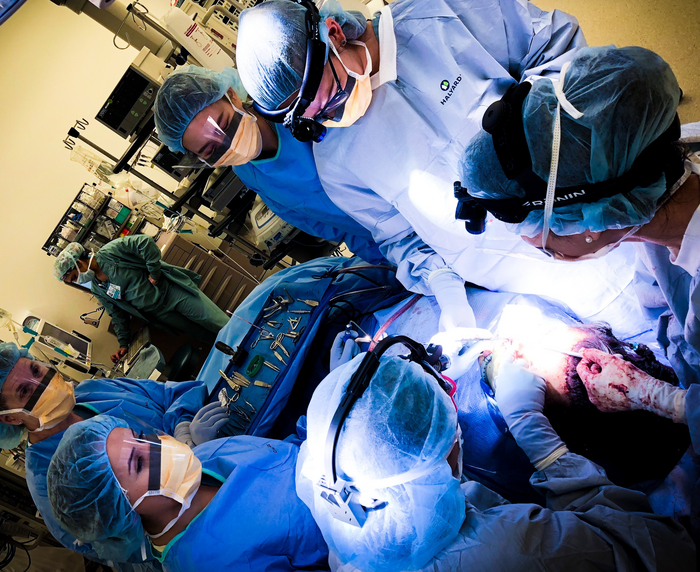A UCLA study offers the first evidence that transgender patients who receive gender-affirming facial feminization surgery reported better mental health after their procedures.

Credit: Courtesy of Justine Lee
A UCLA study offers the first evidence that transgender patients who receive gender-affirming facial feminization surgery reported better mental health after their procedures.
The study was published in the journal Annals of Surgery.
According to Dr. Justine Lee, UCLA’s Bernard G. Sarnat Professor of Craniofacial Biology, gender-affirming facial surgery is frequently classified by insurers as a cosmetic procedure, in part because of a lack of evidence that the procedure improves patients’ quality of life.
“Access to facial gender-affirming surgeries under health insurance coverage in the U.S. is more limited than gender-affirming surgeries of other anatomic regions due to a lack of data on mental health quality-of-life outcomes,” said Lee, who was the study’s lead author and is an associate professor of surgery at the David Geffen School of Medicine at UCLA. “Our findings have the potential to change health insurance policies for the better for transgender patients.”
Researchers compared mental health assessments for 107 patients who were awaiting surgery with those of 62 people who had already completed it, an average of a little more than 6 1/2 months after their procedures.
They found that people who had received the surgery reported higher scores in seven of 11 measures of psychosocial health — anxiety, anger, depression, global mental health, positive affect, social isolation, and meaning and purpose — than those who had not yet had the surgery.
The study suggests that gender-affirming surgery is one of the most important procedures for the treatment of patients with gender dysphoria, the psychological distress that results from the incongruence between one’s sex assigned at birth and one’s gender identity. Among transgender patients who were assigned male at birth, facial characteristics have been reported to be one of the highest sources of dysphoria.
Lee said the majority of patients seeking gender-affirming facial reconstruction are assigned male at birth and identify as female or nonbinary.
Facial feminization surgery encompasses procedures that generally are used to adjust for anatomical differences between the person’s assigned gender at birth and their current gender identity, to reconstruct the anatomical portions of the face that trigger dysphoria in the patient.
Common procedures include feminizing the brow bone area, reducing the jaw area, augmenting the cheeks and reshaping the nose.
The new study determined that — even after adjusting for the effects of factors like the duration of gender-affirming hormone therapy, whether the patient had undergone previous gender-affirming surgeries, pre-existing mental health diagnoses and the quality of the patients’ social relationships — the facial surgery alone was a standalone predictor of higher psychosocial scores.
“In the future, providers may want to consider incorporating psychosocial assessments over a period of time as a standard of care in the treatment of gender dysphoria,” Lee said.
Financial support for the study was provided by the Bernard G. Sarnat Endowment for Craniofacial Biology and the Jean Perkins Foundation. Lee is a medical education consultant for Stryker, a manufacturer of medical equipment used for the surgeries described in the study.
The study’s other authors are Rachel Caprini, Dr. Michelle Oberoi, Dillon Dejam, Candace Chan, Hi’ilani Potemra, Dr. Amy Weimer, Dr. Mark Litwin and Dr. Abie Mendelsohn, all of UCLA; and Dr. Katarina Morgan of UC San Francisco.
Journal
Annals of Surgery
DOI
10.1097/SLA.0000000000005472
Article Title
Effect of Gender-affirming Facial Feminization Surgery on Psychosocial Outcomes
Article Publication Date
4-Jul-2022




